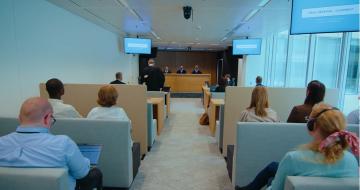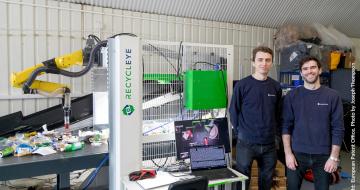On 2 May 2019, Belgium acceded to the Agreement on the Application of Article 65 of the Convention on the Grant of European Patents (EPC), generally referred to as the "London Protocol". This membership is effective from 1 September 2019. Belgium thus became the 22nd Member State of the European Patent Organisation to become a party to the Protocol.
Content provisions
To take effect in the territory of the Member States party to the EPC, a European patent must be validated in each of these States. Most Member States of the EPC require a translation of the European patent into one of their official languages for it to be in force in their territory. This resulted in considerable additional cost and increased the threshold for companies and SMEs to apply for European patents.
The London Protocol simplifies the translation requirements for the validation of European patents. Member States which ratify the Protocol undertake to waive, under certain conditions, the possibility of requiring a translation of the European patent as a condition for validation.
For the practical application of this exemption, the Protocol makes a distinction based on whether or not the State party in question has an official language in common with the European Patent Office (EPO), namely English, German or French. In State Parties which have at least one official language in common with the EPO, such as Belgium (i.e. French and German), patent holders no longer have to submit a translation for validation. In concrete terms, European patents granted in English no longer have to be translated into one of the official languages of Belgium for the purpose of validation in Belgium (this was already the case for European patents granted in German or French).
State Parties which do not have an official language in common with an official language of the European Patent Office must indicate a working language of the EPO. Where a patent is granted in this "designated working language", the State Party may still only require that the claims of the patent be translated into one of its official languages.
In the event of a dispute relating to a European patent, Member States have the possibility of requiring a full translation of the patent into an official language of the Member State where the alleged infringement took place (if the request for translation comes from the alleged infringer) or into an official language of the Member State concerned (if the request for translation comes from a competent court or quasi-judicial authority in the context of proceedings).
Implementation in Belgium
Belgium had already amended its legislation to bring it into line with the London Protocol and had therefore abolished the requirement to provide a translation for the purpose of validating a European patent granted in English as from 1 January 2017 (as already mentioned, European patents drafted in German or French could already be validated in Belgium without an additional translation requirement).
The Law of 29 June 2016 on various provisions relating to Economy amended the relevant provisions of the Code of Economic Law, the Act of 8 July 1977 approving various international acts and the Act of 21 April 2007 on various provisions relating to the procedure for filing European patent applications and to the effects of such applications and of European patents in Belgium to this effect.


